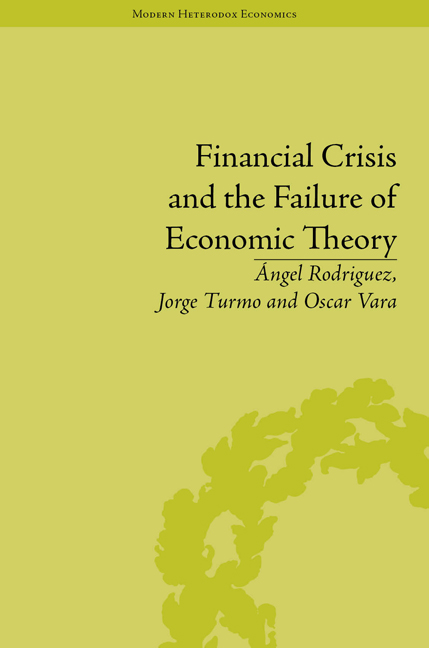Book contents
- Frontmatter
- Contents
- Acknowledgements
- List of Figures
- Introduction
- 1 The Financial Crisis and Modern Economics: From Surprise to Puzzlement
- 2 A Different Look at Economic Theory: The Anthropological Approach
- 3 The ‘Building Blocks’ of Modern Economics: We Do Really Need a Meta-Theory
- 4 The Meta-Theory at Work: A Case Study in Growth Theory and Real Business Cycle Theory
- 5 Governments and the Financial Crisis: Making Economic Policy in the Dark
- 6 Explaining More Complex Phenomena: The Financial System
- Final Remarks
- Notes
- Works Cited
- Index
2 - A Different Look at Economic Theory: The Anthropological Approach
- Frontmatter
- Contents
- Acknowledgements
- List of Figures
- Introduction
- 1 The Financial Crisis and Modern Economics: From Surprise to Puzzlement
- 2 A Different Look at Economic Theory: The Anthropological Approach
- 3 The ‘Building Blocks’ of Modern Economics: We Do Really Need a Meta-Theory
- 4 The Meta-Theory at Work: A Case Study in Growth Theory and Real Business Cycle Theory
- 5 Governments and the Financial Crisis: Making Economic Policy in the Dark
- 6 Explaining More Complex Phenomena: The Financial System
- Final Remarks
- Notes
- Works Cited
- Index
Summary
Widening the Focus: Economic Theory and Philosophy
As with any other scientific branch, the content of economics is not only the corpus of actual economic theories. To a certain extent, economics also includes every single word written about economic issues in the past. All this knowledge is available to us now but it does not mean that it is competing today to explain the economic phenomena. Part of it is obsolete and we study it only for historical reasons. Today, when we talk about contending theories in economics it is necessary to first establish the ones that are more relevant and that deserve to be taken into account.
A suitable criterion of demarcation is provided by history. At the end of the classical period, the three major economic traditions of our times, the neoclassical, Austrian and Keynesian, developed over a sixty-year period. For this reason, we will not treat economic theories of the classical age (even if they are still active, as in the case of neo-Marxists theories).
There is another important reason. We are especially interested in focusing on cooperation among theories, more than in stressing their mutually exclusive characteristics. However, we face some difficulties which arise from two aspects. On the one hand, neoclassicals, Keynesians and Austrians are rooted in different philosophical and epistemological bases. As a consequence, they apply different methodologies in their model building.
- Type
- Chapter
- Information
- Financial Crisis and the Failure of Economic Theory , pp. 33 - 50Publisher: Pickering & ChattoFirst published in: 2014



